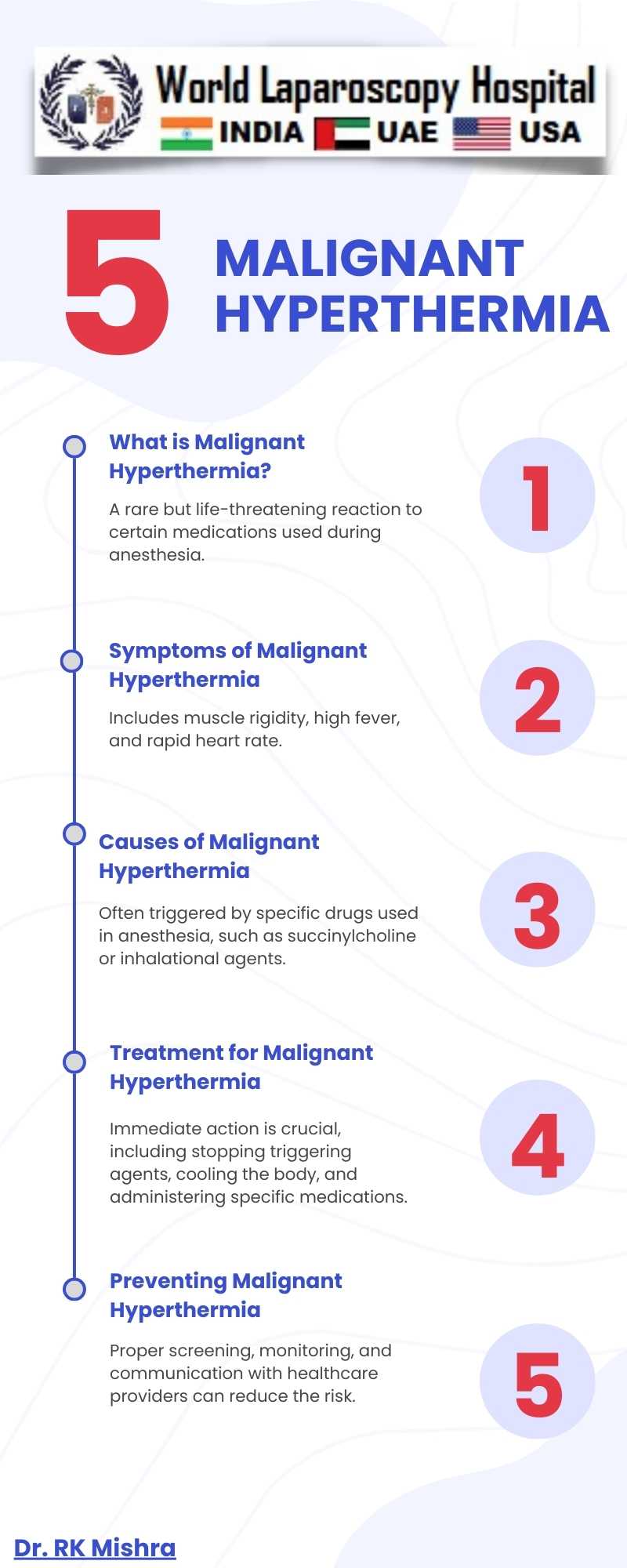Malignant hyperthermia: A severe reaction to certain drugs used for anesthesia
Malignant Hyperthermia: A Severe Reaction to Anesthesia
Malignant hyperthermia (MH) is a rare but potentially life-threatening condition that can occur in response to certain drugs used for anesthesia. This reaction is characterized by a rapid increase in body temperature, muscle rigidity, and a fast heart rate, which can lead to serious complications if not promptly treated. Understanding the causes, symptoms, and treatment of MH is crucial for healthcare providers to effectively manage this condition and ensure patient safety during surgical procedures.

The exact cause of MH is not fully understood, but it is believed to be primarily triggered by genetic factors. Individuals with a genetic predisposition to MH have an abnormal response to certain drugs, known as triggering agents, which are commonly used during anesthesia. These triggering agents, such as succinylcholine and inhalational anesthetics like halothane, trigger a cascade of events within the muscles, leading to the rapid release of calcium ions and the production of excessive heat and metabolic waste products.
The symptoms of MH typically manifest shortly after the administration of the triggering agent. Patients may experience muscle rigidity, especially in the jaw and trunk, along with a rapid increase in body temperature, often exceeding 104°F (40°C). Other symptoms may include a rapid or irregular heart rate, sweating, and a rise in carbon dioxide levels in the blood. If left untreated, MH can progress rapidly, leading to severe complications such as organ failure, cardiac arrest, and even death.
Early recognition and prompt treatment are essential for managing MH. Healthcare providers should be vigilant for signs of MH in patients undergoing anesthesia, especially those with a family history of the condition. Suspected cases of MH should be immediately reported, and treatment should be initiated without delay. The primary treatment for MH is the administration of dantrolene, a medication that helps to reverse the muscle rigidity and hypermetabolism associated with the condition. Additional measures, such as cooling the patient and providing respiratory support, may also be necessary to stabilize the patient's condition.
Conclusion:
Malignant hyperthermia is a rare but potentially life-threatening condition that can occur in response to certain drugs used for anesthesia. Healthcare providers should be aware of the causes, symptoms, and treatment of MH to ensure timely intervention and improve patient outcomes. By recognizing the signs of MH and initiating appropriate treatment, healthcare providers can effectively manage this condition and minimize the risk of serious complications during surgical procedures.
Malignant hyperthermia (MH) is a rare but potentially life-threatening condition that can occur in response to certain drugs used for anesthesia. This reaction is characterized by a rapid increase in body temperature, muscle rigidity, and a fast heart rate, which can lead to serious complications if not promptly treated. Understanding the causes, symptoms, and treatment of MH is crucial for healthcare providers to effectively manage this condition and ensure patient safety during surgical procedures.

The exact cause of MH is not fully understood, but it is believed to be primarily triggered by genetic factors. Individuals with a genetic predisposition to MH have an abnormal response to certain drugs, known as triggering agents, which are commonly used during anesthesia. These triggering agents, such as succinylcholine and inhalational anesthetics like halothane, trigger a cascade of events within the muscles, leading to the rapid release of calcium ions and the production of excessive heat and metabolic waste products.
The symptoms of MH typically manifest shortly after the administration of the triggering agent. Patients may experience muscle rigidity, especially in the jaw and trunk, along with a rapid increase in body temperature, often exceeding 104°F (40°C). Other symptoms may include a rapid or irregular heart rate, sweating, and a rise in carbon dioxide levels in the blood. If left untreated, MH can progress rapidly, leading to severe complications such as organ failure, cardiac arrest, and even death.
Early recognition and prompt treatment are essential for managing MH. Healthcare providers should be vigilant for signs of MH in patients undergoing anesthesia, especially those with a family history of the condition. Suspected cases of MH should be immediately reported, and treatment should be initiated without delay. The primary treatment for MH is the administration of dantrolene, a medication that helps to reverse the muscle rigidity and hypermetabolism associated with the condition. Additional measures, such as cooling the patient and providing respiratory support, may also be necessary to stabilize the patient's condition.
Conclusion:
Malignant hyperthermia is a rare but potentially life-threatening condition that can occur in response to certain drugs used for anesthesia. Healthcare providers should be aware of the causes, symptoms, and treatment of MH to ensure timely intervention and improve patient outcomes. By recognizing the signs of MH and initiating appropriate treatment, healthcare providers can effectively manage this condition and minimize the risk of serious complications during surgical procedures.
2 COMMENTS
Dr. Ankit Thakur
#1
Feb 27th, 2024 5:08 pm
Malignant hyperthermia, a rare yet life-threatening reaction to anesthesia drugs, requires vigilance from healthcare providers. Understanding its causes, symptoms, and treatment is crucial for prompt intervention and improved patient outcomes, mitigating risks during surgery.
Dr. Chahat Trehan
#2
Feb 27th, 2024 5:40 pm
Malignant hyperthermia, though rare, poses life-threatening risks under certain anesthesia drugs. Provider awareness of its causes, symptoms, and treatment is vital for timely intervention and better outcomes. Recognizing MH signs enables effective management, reducing surgical risks.
| Older Post | Home | Newer Post |

